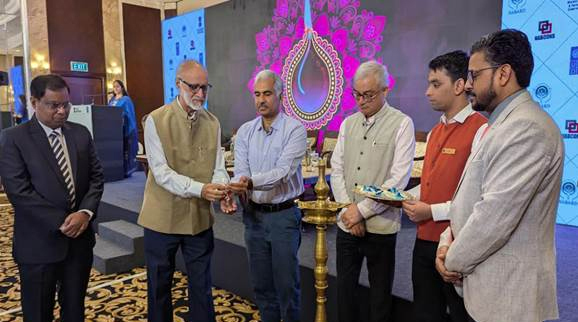The Agriculture and Farmers Welfare Ministry hosted a workshop titled “Unleashing India’s Agribusiness potential through Innovative Agri Value Chain Financing on June 27, 2024 in New Delhi. This event convened a distinguished assembly of senior officials from the Government of India and State Governments, along with experts and stakeholders, to delve into the intricacies of agricultural financing.
At the heart of the workshop’s discussions was a shift advocated by Manoj Ahuja, Secretary of the DA&FW. He highlighted the necessity to move from a traditional production-centric model to a demand-driven approach in agricultural financing. “To holistically develop Agricultural Value Chains (AVCs) and integrate them with global markets, our focus must pivot from addressing mere supply shortages to fulfilling market demands,” Ahuja explained.
He stressed the importance of implementing accountable and digitally enabled systems to foster effective AVC development and called for a comprehensive policy framework to ensure financial inclusivity for all involved stakeholders.
During his address, Ahuja proposed the adoption of financial tools such as bill discounting, bridge financing, and risk-hedging to enhance liquidity and ensure economic stability. He emphasized the need for an environment that simplifies application processes and minimizes bureaucratic obstacles to efficiently leverage these financial instruments.
Adding to the discourse, Dr. Vivek Joshi, Secretary of the Department of Financial Services, underlined the pivotal role of Digital Financial Services in ensuring timely credit provision within the Agricultural Value Chain Financing (AVCF) framework.
Joshi observed a notable enhancement in agricultural credit availability, focusing on seamless and affordable credit access to support farmers throughout the value chain. He acknowledged the substantial contributions of NBFCs, fintech companies, and startups in offering last-mile credit solutions and specialized financial products, especially in high-value agricultural markets.
The workshop facilitated extensive discussions and collaboration, aiming to empower participants with innovative solutions in agricultural finance. Notable speakers like Prof. Ashok Gulati, a distinguished professor at ICRIER, emphasized the necessity of a demand-driven agricultural approach to boost farmer incomes and develop climate resilience.
The event commenced with a welcoming address by Shri Ajeet Kumar Sahu, Joint Secretary (Credit) of the DA&FW, who underscored the need for a holistic approach to AVCF. He cited projections indicating that agricultural Gross Value Added (GVA) is expected to reach Rs 105 lakh crore by 2030, highlighting the increasing importance of value chain financing.
Chairman of NABARD, Shri K.V. Shaji, stressed the urgent requirement to enhance farmers’ finance access and reliable data availability for Self-Help Groups (SHGs) and Farmer Producer Organizations (FPOs), which are essential for banks to provide effective value chain financing. He also called for strengthening the governance structure of rural cooperatives and enhancing public infrastructure, including facilities for processing, branding, and marketing of agricultural products.
The workshop also featured a presentation by Shri Ritesh Chauhan, CEO of PMFBY, on fostering financial resilience through the Pradhan Mantri Fasal Bima Yojana (PMFBY) scheme. Chauhan advocated for leveraging technology platforms like SARTHI, AIDE, Kisan Rin Portal, and AGRISTACK to streamline credit processes and bolster agricultural resilience.
Panel discussions during the workshop explored cluster-based approaches, innovative financing mechanisms, and the integration of FPOs into value chains, with experts sharing diverse insights and experiences to enrich the discussions. This collaborative event marked a significant step towards transformative initiatives in India’s agricultural sector.














































